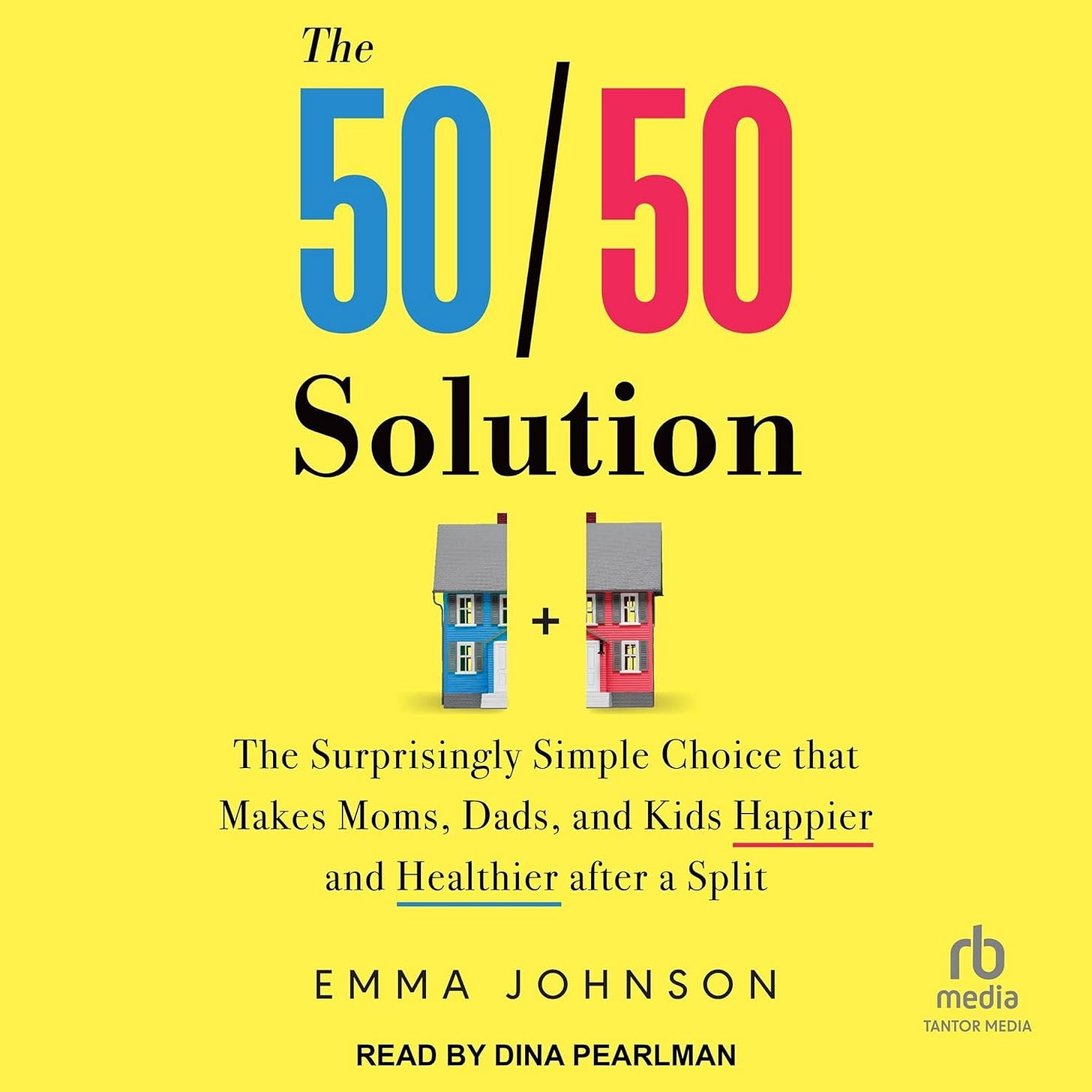New! Audiobook of award-winning 50/50 Solution
Free chapter: FAQs about 50/50 parenting
The 50/50 Solution: The Surprisingly Simple Choice that Makes Moms, Dads, and Kids Happier and Healthier after a Split (SOURCEBOOKS) hit Amazon bestseller lists and won a National Parents Organization research award.
It has also been featured in dozens of media outlets including the Wall Street Journal, Newsweek, Slate and in a presentation before a Scottish Parliament group.
Now you can get The 50/50 Solution in your ears via audiobook!
More about the book and media appearances:
How to support the book:
Buy it, silly!
Tell your friends (forward this email!)
Share on Twitter, Facebook, Substack, LinkedIn!
Leave a review. Bumps it up in the algorithm and drowns out the trolls. Plus, nice reviews make me feel good!
Excerpt of The 50/50 Solution:
FAQs about 50/50 Parenting
When I talk about 50/50 parenting, I get a lot of “Yeah, buts” related to specific situations. Here are my answers to the most common questions about equal parenting. Maybe they speak to your concerns, or you may use this lang…



